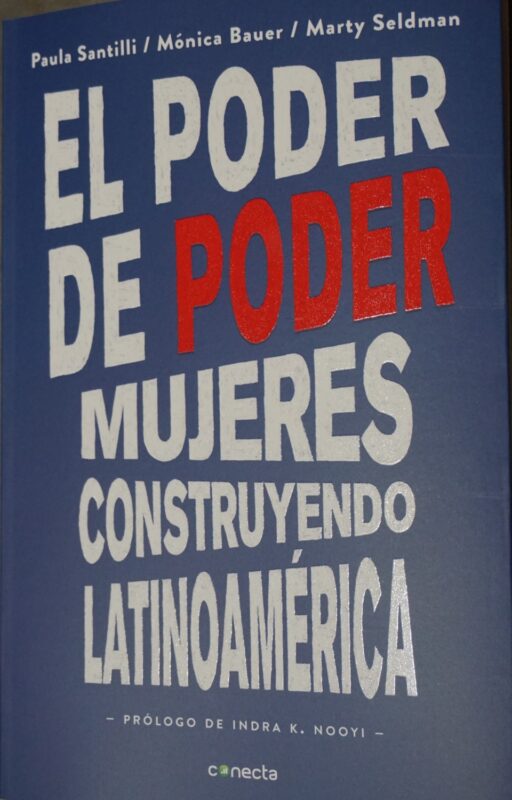A study carried out by the Center for Research on Women in Senior Management (CIMAD) from IPADE Business School, in Mexico in 2019 entitled: Beyond Gender Equity: Complementary Leadership. It was found that the organizations with the highest proportion of women in Senior Management (50% or more of women) present the best results in all the dimensions measured by Great Place to Work, among which stand out those of Credibility, Respect and Impartiality. The absence of favoritism is the variable with the greatest difference between the very high and very low presence of women leaders. It was identified that in the group with more women in Senior Management, there are better results in leadership competencies such as developing talent, thanking the good work and extra effort, and taking care of people, surpassing by several percentages point the average. From this research, it can be concluded that organizations with a higher proportion of women leaders present the best results in their work environment.
Although gender equality, inclusion, and diversity benefits companies, in Latin America we see slower progress compared to the European continent. Within this context so unfavorable for women, I found hope, I attended the launch of the book: The Power of Empowerment. Women Building Latin America, whose authors are the leaders of PepsiCo Latin America, Paula Santilli, and Monica Bauer, and business coach Marty Seldman teach us the 12 rules of power to grow within an organization, achieve our full potential, and achieve success. This executive coaching book seeks to empower women to access key positions and, from there, to unleash virtuous circles that enhance the development of women around them, their families, and their communities. That´s why I interviewed Monica Bauer, to discuss details about the book and know her opinion about the current situation that women in top management are living.
Mónica, you are co-author with Paula Santilli and Marty Seldman, of the book “The Power of Empowerment. Women Building Latin America”, where did the idea of writing this book come from? With what purpose?
After receiving executive coaching from Marty Seldman - at different moments in our career - we asked ourselves how we could contribute to accelerate the development of professional women and change a reality where there is still much to be done in terms of female labor participation.
We agreed that, to succeed, women must overcome their fears, know their inner power and feel comfortable using it. This is how we ventured, hand in hand with Marty, to write this book with the conviction of promoting women in competitive environments in Latin America.
The purpose is to make a call to action for women and men in leadership positions to provide new opportunities for women in the region and, thus, contribute to change their reality. Our greatest aspiration is to create a virtuous circle that will bring development and equity to the region. Therefore, 100% of the book's royalties will go to FUNDES (a non-profit organization) to support micro, small and medium entrepreneurs.
The book is divided into 4 big topics and into 12 rules, why did you choose this structure?
“The Power of Empowerment” seeks to serve as a guide for women to access better positions in the labor market, while sharing practical tools for them to understand and use power, to build strategic networks, and to know how to promote and take care of themselves. The book is based on these four main pillars because we identified that these are the key areas where women in Latin America need to focus on and work the most to succeed.
Along with these, the three authors of the book share the 12 rules that provide the necessary skills to accelerate women's professional growth. These serve as a platform for them to overcome professional and personal challenges on their path to success.
The book complements these rules with true stories of brave women, close to PepsiCo, who faced challenges related to gender stereotypes, but who chose to listen to their inner voices and intuitively applied some of these rules to move forward. Their examples demonstrate that these rules are more than a theory and that they really work when put into practice.
In your opinion, what are the most important challenges that women in top management face and how do you think this book can help them?
Women face diverse challenges throughout their careers. However, there are some more critical than others and if women are not able to sort them out, this will certainly have a negative repercussion in their professional development.
The first one is related to the use of power. The book is intended to help women recognize the power that they have. Women are rarely taught what to do with it or how to handle it. However, it is vital for them to recognize it, for them to learn to feel comfortable exercising it, and -very important- not to lose it to some boss who wants to take it away. The first part of the book is dedicated to understanding what this concept means and how it works: identifying the people with influence around us and those we can trust to become our allies, as well as identifying the dynamic that prevails in our workplace and knowing how to take advantage of that, among others.
The second one is the enormous difficulty for women in Latin America to be vocal about their needs and career aspirations. Women in the region do not feel comfortable expressing what their dreams are, even when they are extremely well-suited for a job. It is largely because of a cultural and family background where they are not allowed to give their opinion, also because most of the time they are unaware, or they minimize their contribution to companies and to their community. The power of self-promotion is essential in our careers. We must all learn to communicate our experiences, successes, and skills in a timely manner. The section of the book that talks about this aims to make women much more outspoken about their career plans and to accept the opportunities offered to them.
Finally, I would say that not having a support platform or ecosystem for them to combine their personal and professional development is an enormous challenge. Women are successful in wherever role they play. However, for them to thrive they must have a solid support system that takes their needs into consideration in terms of flexible schedules, training and mentoring programs, among others. This is also a very important part of the message that we want to convey by clearly stating that women do not get to the top alone, and it is our responsibility to create a support network with people who can share ideas, advice and at the same time make us reflect on our performance. If we really want to foster women inclusion in the workforce, we must start by empowering and supporting them, while recognizing their contributions.
Some time ago I had the opportunity to interview a very powerful Mexican female CEO and she told me that part of her success lay in having worked for foreign companies, you are VP Corporate Affairs & Sustainability at PepsiCo Latin America, you think working in a company like PepsiCo, which is a foreign company and where they had a female CEO as Indra Nooyi until 2018 has fostered your professional growth?
I believe that it’s key to choose where you want to work and who you want to work for. In my case I’ve been blessed and I’m thankful for working at PepsiCo for over 15 years. Through these years I’ve witnessed how our company invests in its people’s development, which definitely boosts our business growth. I actually have been lucky because PepsiCo is a pioneer company when it comes to diversity and inclusion and I’ve always had the privilege to take advantage of the policies that it offers throughout different moments of my life.
Indra is an inspiration for women working at PepsiCo. She is the living example that we can do everything that we set out to do, while having a very rewarding professional and personal life.At PepsiCo, we believe that an inclusive environment that values diversity and gender equality is critical to the innovation of ideas, processes and leadership. In Latin America, we have the responsibility to promote women inclusion and contribute to more inclusive and representative growth where wealth permeates and reaches the bottom of the pyramid.
Example of the above are two of our 2025 goals, according to which we will achieve gender parity in our management roles and pay equity for women and will invest $100 million in the development of women strengthening their employability and entrepreneurial skills.
The book is available only in Spanish, if you are interested to get it, click here:
https://www.amazon.com.mx/El-poder-Mujeres-construyendo-Latinoam%C3%A9rica/dp/607318820X
https://www.megustaleer.mx/libros/el-poder-de-poder/MMX-011203
https://www.claroshop.com/producto/1219904/el-poder-de-poder/



